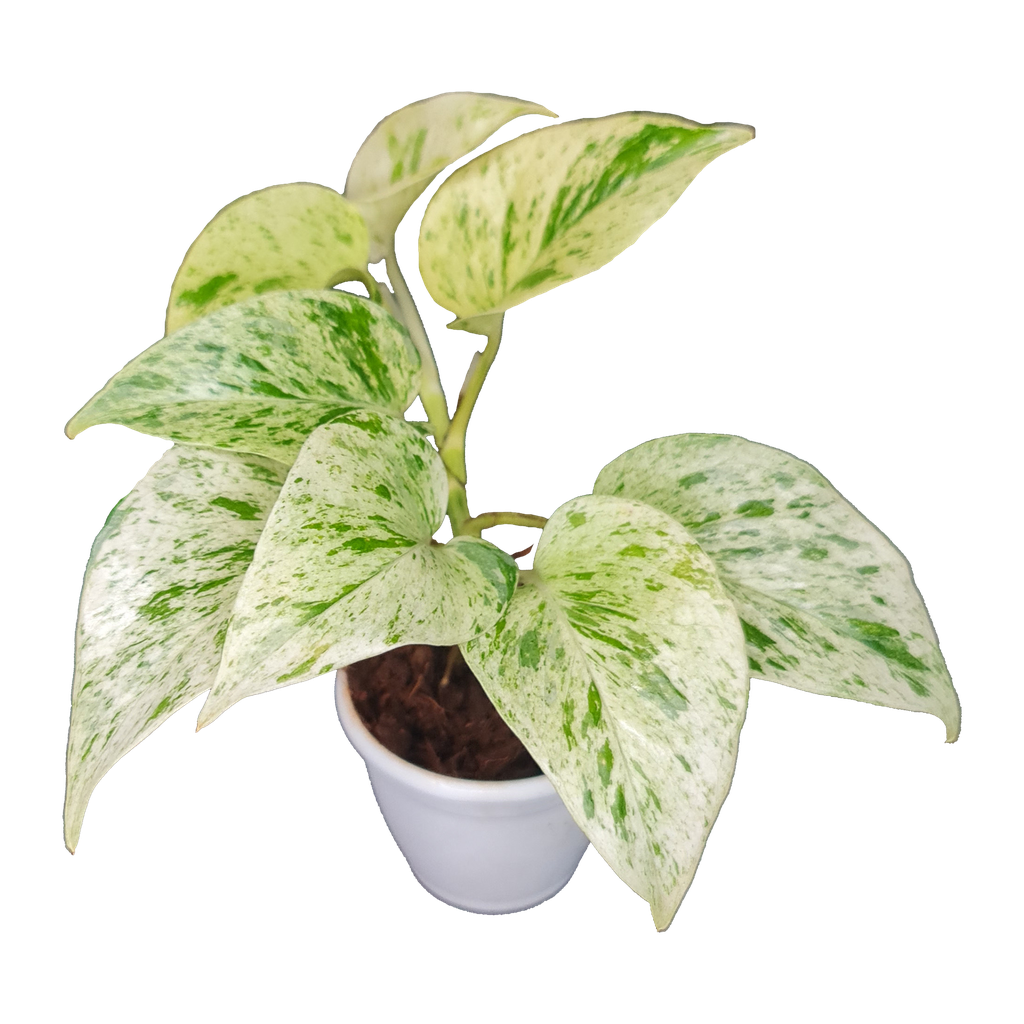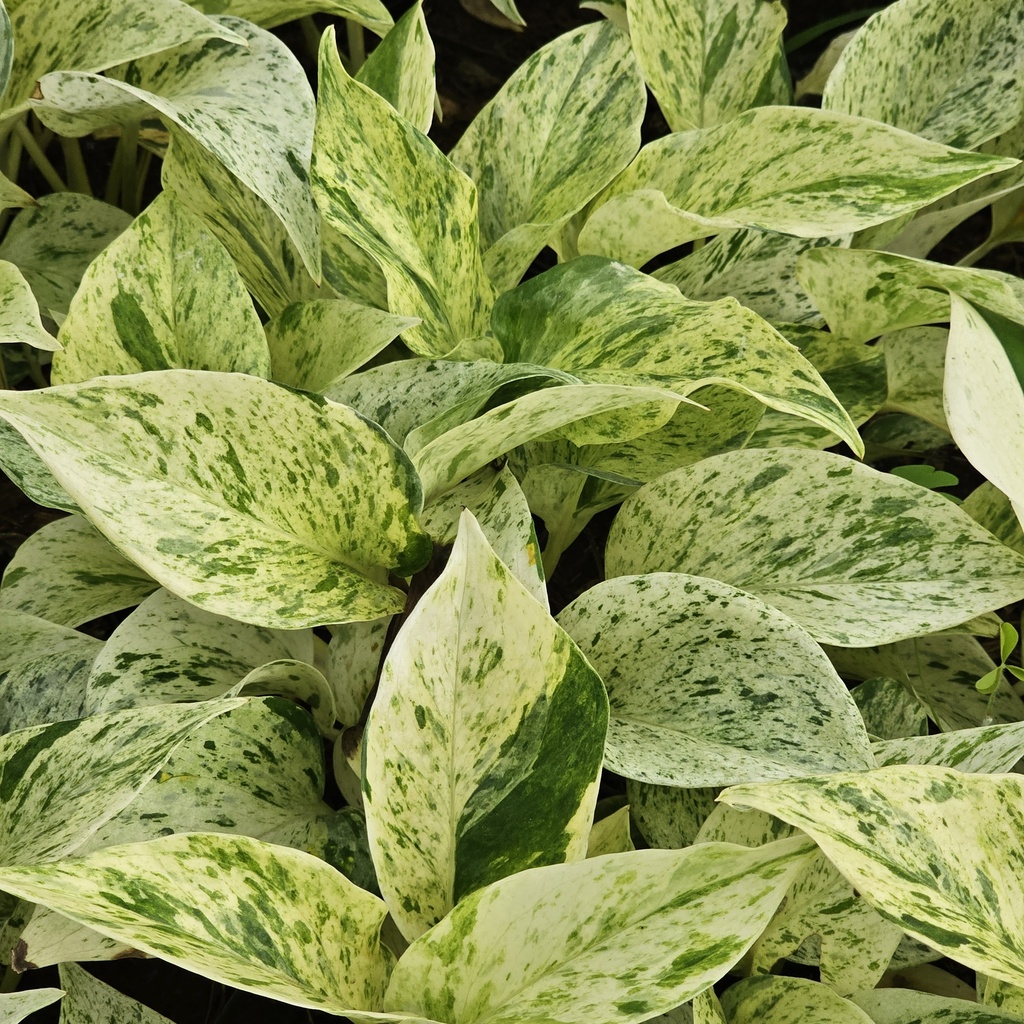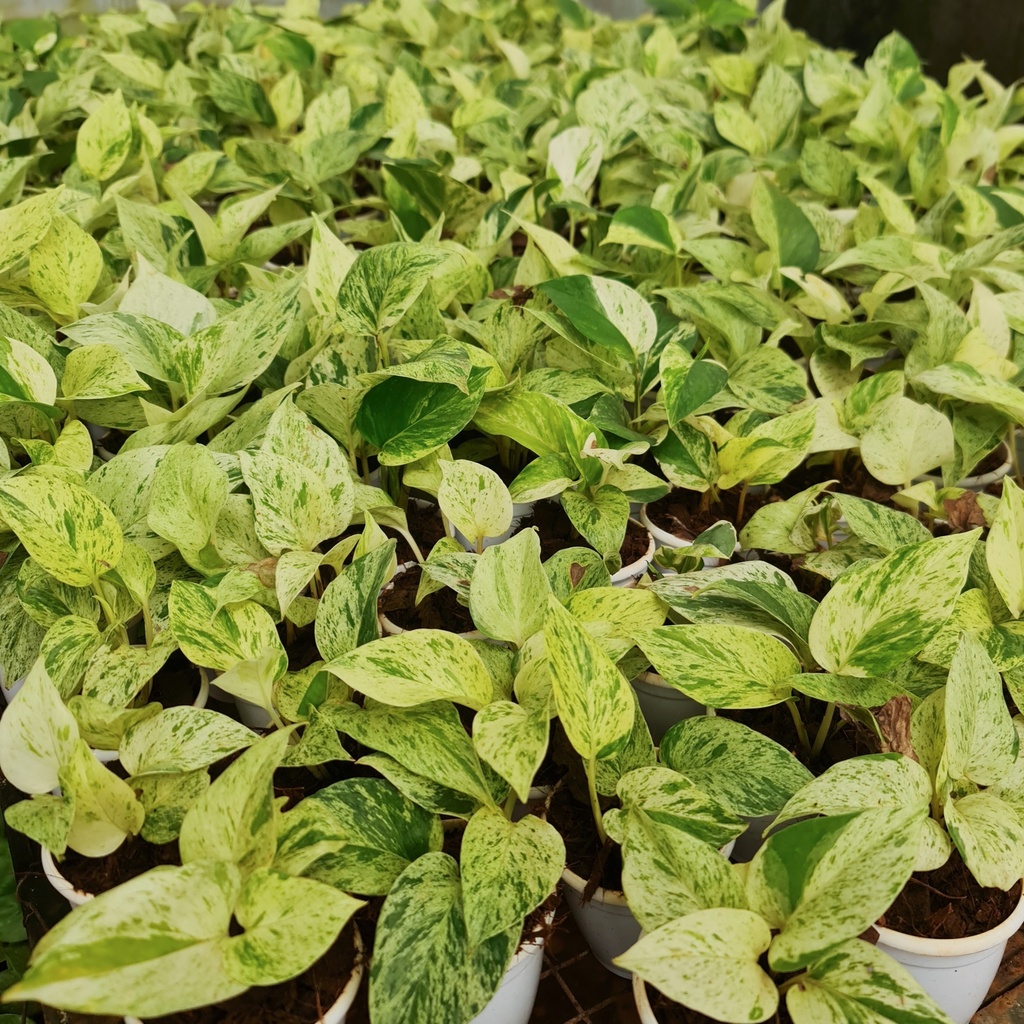Marble Queen Pothos (Epipremnum aureum 'Marble Queen') is a striking cultivar of the popular Pothos family, known for its distinctive variegation. As a cultivated variety, 'Marble Queen' showcases heart-shaped leaves with a marbled pattern of green and creamy-white hues. The lush and trailing growth habit makes it a sought-after choice for enhancing indoor spaces. At Jagtap Nursery, a leading wholesale plant supplier located on Solapur Road, you can find a wide range of green wall plants, including the Marble Queen Pothos. Whether you're looking to create a stunning green wall or simply add some lush foliage to your indoor environment, Marble Queen Pothos from Jagtap Nursery is an excellent option.
Light:
Thrives in bright, indirect light but can tolerate lower light conditions. Avoid prolonged direct sunlight, as it may scorch the leaves.
Water:
Allow the soil to dry out between waterings. Water moderately, ensuring proper drainage to prevent waterlogging.
Soil:
Use a well-draining potting mix with added organic matter. A slightly acidic to neutral pH is suitable.
Fertilizers:
Feed with a balanced liquid fertilizer every 4-6 weeks during the growing season (spring and summer). Dilute according to package instructions.
Temperature:
Prefers temperatures between 60-80°F (15-27°C). Protect from cold drafts.
Propagation:
Easily propagated through stem cuttings. Place cuttings in water or directly in soil for new plant development.
Pest and Diseases:
Generally resistant to pests. Keep an eye for spider mites and mealybugs. Treat with insecticidal soap if needed.
Treatments:
Regularly clean the leaves with a damp cloth to prevent dust accumulation. Prune if necessary for shaping.
Similar Looking Plants (Alert)
Epipremnum aureum 'Manjula': Similar variegation but with distinct patterns.
Mix Planting Recommendations:
Elevate your indoor garden by combining Marble Queen Pothos with the following companion plants:
Peperomia Obtusifolia (Baby Rubber Plant)
Dieffenbachia (Dumb Cane)
Fiddle Leaf Fig (Ficus lyrata)
This combination offers a diverse array of textures, shapes, and sizes, creating a visually appealing and harmonious indoor garden.





